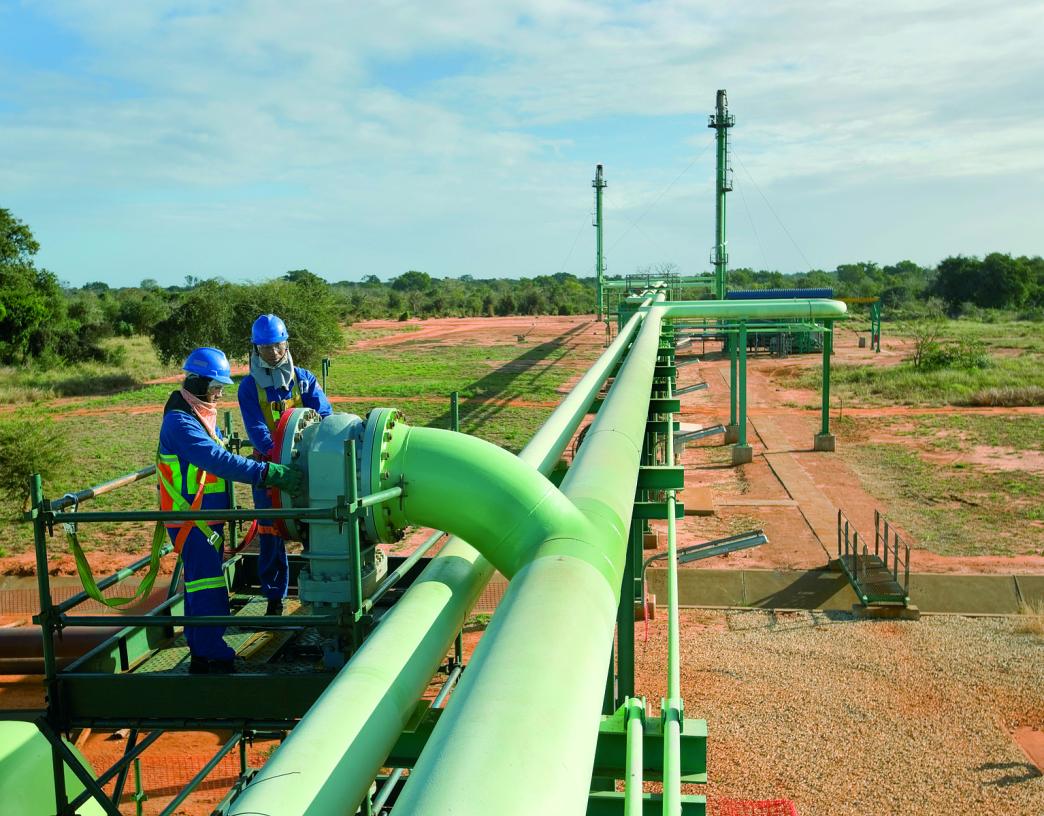
How Mozambique Could Strengthen its Proposed Sovereign Wealth Fund
The Mozambique government expects the country’s large gas reserves to generate revenues of around USD 96 billion over 25 years (based on a 2019 estimate). With offshore production due to start in 2022, the country is at a critical moment.
In October 2020, Mozambique’s central bank published a proposal for establishing a new sovereign wealth fund. The decisions made now about the structure and rules of the fund will have major ramifications on the country’s economic future and the wellbeing of its citizens.
Under the plan, 50 percent of annual oil, gas and mining revenues would be deposited in the fund until its twentieth year, and 80 percent thereafter. The fund would then, in theory, use these deposits to meet two objectives: accumulation of savings to balance the needs of present and future generations, and fiscal stabilization.
The proposal incorporates many of the key elements of effective, accountable and transparent sovereign wealth fund frameworks. Among the strongest of these are clear fund objectives, clear deposit rules, the channeling of domestic spending through the state budget and a comprehensive governance structure accompanied by a robust auditing framework.
Nevertheless, as officials work to finalize the sovereign wealth fund framework, they might consider improving it in several important areas:
1. Manage public expectations given gas revenue uncertainty
Government revenues could come in lower and later than expected. The government took the important step of publishing downside scenarios in 2018, but these have not grabbed headlines in the same manner as optimistic projections. The government could publish updated scenarios regularly and refer to the downside scenarios in its public statements about the fund. Using several means of communication, especially social media, would also help manage public and political expectations.
Mozambique’s hopes rest on Total’s Area 1 and Exxon and Eni’s Area 4 liquefied natural gas (LNG) projects. Area 1’s first phase and Area 4’s Coral floating project are under development, but the larger Area 4 onshore project is yet to reach a final investment decision. With Rystad Energy estimating a breakeven LNG price of nearly USD 7 per million British thermal units (mmBtu), it is not guaranteed that the Area 4 onshore project will be developed at all. The Asian benchmark price has averaged around USD 9 per mmBtu over the past five years. But if the world acts to limit global warming to less than 2˚C by 2050, Wood Mackenzie suggests that the Asian price could be lower, possibly less than USD 5 per mmBtu by 2040. Under this scenario, Area 4’s onshore project is likely unviable. These low prices would also reduce government revenues from the other projects. As previous government projections and the experience of some of sub-Saharan Africa’s other new producers highlight, another risk is cost overruns, which would further lower government revenues.
2. Beware saving for future generations when borrowing at high interest rates
The government could revise the proposed deposit and withdrawal rules to reflect that saving revenues may sometimes hinder rather than help achieve intergenerational equity. While a reasonable rate of return for most sovereign wealth funds is around 4 percent, Mozambique is borrowing at high interest rates, such as 9 percent on a Eurobond. A simple illustration highlights the implication: If a person has $100 in debt and is paying 9 percent interest on this debt, but is earning 4 percent interest on their savings in the bank, then for every $100 saved rather than used to pay down debt, the person loses $5.
Intergenerational equity is not just about money though; the government can help future generations by investing in healthcare, education and productive infrastructure today. In Mozambique, the benefits from domestic spending are greater than the likely return on fund savings, and likely to remain so until poverty is drastically reduced. While the government should consider “absorptive capacity” constraints to effective public investments, we recommend it prioritizes good public investments.
The proposed deposit and withdrawal rules together act as a revenue-based fiscal rule based on arbitrary saving-spending thresholds. The government should consider only making fund deposits if debt servicing costs become manageable or once extractives revenues reach a certain threshold, like solutions implemented in Mexico and Tanzania. Alternatively, the state could adopt a general fiscal expenditure rule or structural balanced budget rule.
3. Ensure all government spending is smoothed rather than just focused on gas revenue volatility
We recommend a different approach to managing volatility. The proposed deposit and withdrawal rules are “pro-cyclical” in that they allow for more spending when extractives revenues are high and require spending cuts when revenues are low. The stabilization component of the fund—which can channel up to 4 percent of the previous year’s gas revenue to the state budget when actual revenues fall short of projected revenues—may not fully mitigate this effect.
To even out year-to-year spending, we recommend an expenditure smoothing rule that allows for additional spending on infrastructure and human capital development projects (provided these generate an adequate social rate of return). For instance, in Peru, rules only permit real current expenditure to increase by 4 percent a year. Though if the congress declares an emergency, an exception can be made: like the escape clause suggested in Mozambique’s proposal, which we support.
4. Clarify ENH dividend policy and cost controls
The proposal suggests that all taxes, royalties and other fees paid by the national oil company, Empresa Nacional de Hidrocarbonetos (ENH), would be deposited into the fund, as would its dividends. International experience indicates that national oil companies tend to increase expenses as production increases, reducing the revenues available for dividend payments and therefore to the national treasury. While the dividend policy for CMH, a partially privatized subsidiary of ENH, was recently clarified, we recommend clarifying the dividend policy for ENH as a whole. We also recommend strong cost control measures at ENH and its subsidiaries, such as limits on their mandates, more comprehensive and regular cost audits, greater transparency and publication of independent external audits.
5. Enhance investment rules
While sovereign wealth fund investment guidelines generally contain detailed asset management policies—such as target asset allocation, benchmarks, lists of eligible and prohibited asset classes and diversification requirements—the government might consider a stronger approach by legislating these measures, as in Ghana, Uganda and Timor-Leste.
6. Enhance transparency and external accountability
The proposal requires public disclosure of quarterly and annual reports, but what information these must contain requires further clarification. For instance, the reports could include fund balances, returns by asset class or by asset, and external managers and their fees. The government could also publish online independent external audits and Administrative Court reports.
Finally, the government could consider tasking an independent, multi-stakeholder body oversight of the management of extractives revenues, potentially reporting to the parliament and the public. Such bodies, instituted by countries including Ghana and Timor-Leste, have improved fund management and strengthened public trust in the management of natural resources.
Andrew Bauer is a consultant to the Natural Resource Governance Institute (NRGI). Thomas Scurfield is an Africa economic analyst at NRGI.
Image by Sasol.
Authors


Thomas Scurfield
Africa Senior Economic Analyst
